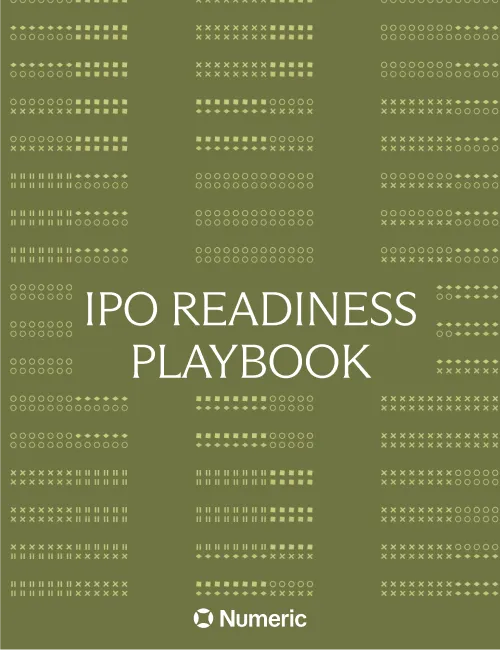When is the fiscal year end for public companies?
.webp)
When do companies close their books for the year?
Picking a year-end date might seem straightforward, but for accounting teams, it's a decision that shapes their entire year – from when they're rushing to close the books to when they're presenting to investors. We were curious: when are most companies wrapping up their fiscal year? What factors influence that decision?
Our data & methods
We pulled together the records of 717 public companies, including their city, state or country of incorporation, as well at their 10-K date and industry. Then, we calculated trends across each field. We wanted to understand not just when companies close their books, but potential for reasons for why they choose those dates.
Put Your Team on the Road to IPO

When companies close their fiscal year
From our sample, we discovered something that might sound familiar to most accounting teams – December 31st dominates the calendar.
More companies complete their year-end on December 31 than any other day of the year. No coincidence there: almost 70% of the companies we selected find the end of the calendar year to also serve well as an end of the fiscal year. How fitting!
Other common dates included: January 31, March 31st, September 30th, and June 30th. These dates represent quarter-end dates for the first three quarters of the year (March 31st, September 30, and June 30th) while January 31st stands out as an option for businesses that want to keep their accounting teams from typing away at the holiday dinner table.
.webp)
These weren’t the only dates however: some companies schedule their year-ends for January 1st, August 31st, and even oddball one-offs like September 5th.
But overall, what did the data tell us?
Industry Trends in Year-End Selection
Some industries show clear tendencies in how they define their fiscal year.
- Based on the data pulled, it appears that 70% of public companies, regardless of industry, slate their year-end for December 31.
- Software & Technology Companies (Computer Software, Telecommunications, IT Services): Tend to align with December 31, likely due to investor expectations and ease of financial reporting.
- Investment & Financial Services Firms: More likely than other sectors to adopt March 31, potentially to align with fiscal periods used in regulatory reporting.
- Healthcare & Pharmaceuticals: Show a mix of December 31 and June 30, often influenced by funding cycles and research grant timelines.
- Government Contractors & Defense: September 30 is common, matching the U.S. federal government’s fiscal year.
- Retail & Consumer Goods: More likely to choose January 31, allowing them to capture full holiday season sales before closing the books.
Geographic Trends in Year-End Selection
Location also plays a role in fiscal year selection.
- United States: The vast majority of companies opt for December 31.
- Canada & United Kingdom: March 31 is more prevalent, aligning with government fiscal cycles.
- Australia & India: June 30 is standard due to local tax regulations.
- California & New York: Heavy concentration of tech and finance companies means December 31 dominates.
- Texas & Illinois: More diverse mix, with higher representation of March 31 and June 30.
What This Means for Pre-IPO Accounting Teams
For companies preparing to go public, the choice of fiscal year-end is more than just a date on a calendar—it impacts comparability, reporting cadence, and investor relations.
- If aligning with industry norms, December 31 is often the easiest choice, particularly for tech, SaaS, and software companies.
- If regulatory considerations matter, March 31 or September 30 might be preferable for investment firms and government contractors.
- If seasonality is a factor, January 31 or June 30 may provide cleaner financial reporting.
Whatever the choice, pre-IPO controllers should ensure that their selected year-end supports long-term reporting strategies and investor expectations.
Final Thoughts
While December 31st might be the crowd favorite, there's no one-size-fits-all answer. Your industry, location, and business cycle all play a role in this decision.
For financial controllers and accounting teams, how does your company’s year-end look? Does it align with these trends, or do you take a different approach? Regardless of your answer, all teams need to stay equipped and alert when trying to wrangle the beast that is the year-end close. Stay on top of things with Numeric's year-end close checklist template, and our guide to the best practices for tackling the year-end close.


















.png)
.png)
